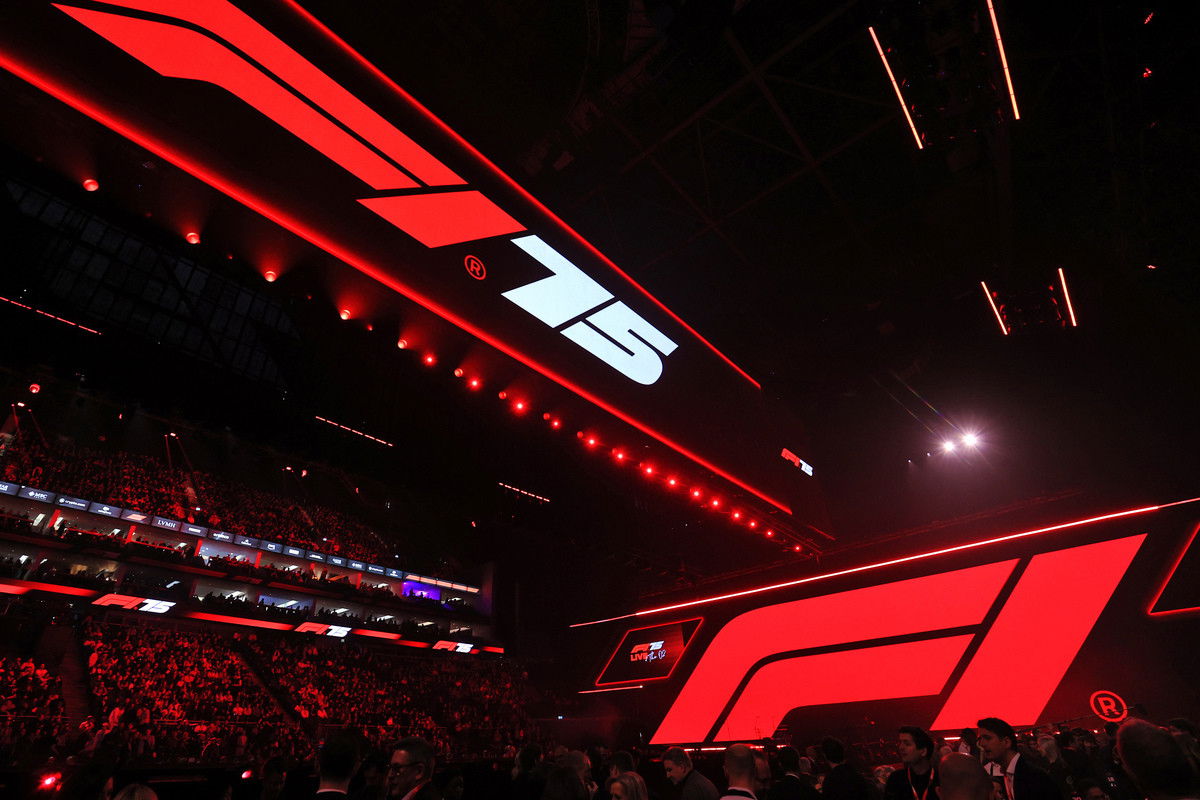

The high-profile event was the first time the sport had collectively launched its season with all 10 teams and 20 drivers present.
Put on by F1 itself, the live show afforded each team an opportunity to take centre stage and reveal the look of their new cars.
Each did so in its own way, with some opting for lavish on-stage displays and others with video elements complementing an on-stage appearance.
Consistent across each, however, was that the drivers and team bosses were presented to the crowd.
For Lewis Hamilton and Ferrari, that met with rapturous applause.
By contrast, the response afforded to Christian Horner and Max Verstappen met a cacophony of boos as Red Bull was presented.
A similar response was given when the FIA was briefly mentioned midway through the event.
While unperturbed by the response it received, the governing body did take issue with the treatment of Horner and Verstappen.
“Great rivalries throughout the history of motorsport have contributed to making it such an exciting experience for fans,” a spokesperson said in a statement issued to Speedcafe.
“But what underpins sport at all levels is a culture of respect.
“As such, it was disappointing to hear the crowd’s tribalist reaction to FIA Formula 1 world champion Max Verstappen and his Red Bull team principal and CEO Christian Horner, at the F1 launch in London.
“Max and Christian have both contributed greatly to the sport we love. In the season ahead we should not lose sight of that.
“As part of the FIA’s commitment to protect the integrity of the sport, we are leading a coalition tackling online abuse in sport under the banner of our United Against Online Abuse campaign.
“We stand with all of our competitors, officials, volunteers, and fans to unite against this growing threat.
“We urge the sporting community to consider the impact of their actions both online and offline.”
The comments come as the FIA takes a renewed stance on misconduct and swearing within the sport.
It also follows the publication of the most recent United Against Online Abuse survey which revealed athletes and officials are facing increased abuse online, such that it is forcing some athletes and competitors out of the sport.
In January, the FIA published the latest edition of the International Sporting Code (ISC), the document that underpins global motorsport.
While the document ostensibly underwent no changes as far as rules and penalties went, a new appendix laid out guidelines for stewards regarding several elements within the ISC.
That includes deliberately significant fines, largely aimed at categories below F1, in an effort to dissuade the use of vulgar language.
The increased so-called ‘swearing ban’ has been met with disdain and confusion by fans and competitors alike.
It also seemingly places the governing body at odds with the desire of promoters who seek to elevate drivers as hero figures and showcase more of their personality, a move that drives the sort of tribalism prevalent in other sports.
In Sydney, Supercars drivers were told to be more open and personable in their dealings with television and the media when they met with championship officials ahead of the opening round of the season.
That immediately preceded a meeting with Motorsport Australia where drivers were advised that, as Supercars in an International Series, they were bound by the ISC – though its application remains the responsibility of the stewards of each event.



















Discussion about this post